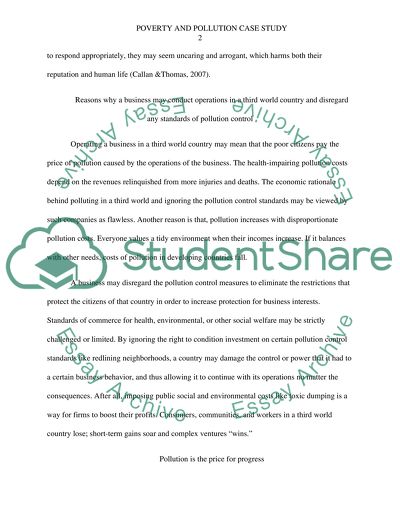Cite this document
(“Poverty and pollution Case Study Example | Topics and Well Written Essays - 1250 words”, n.d.)
Retrieved from https://studentshare.org/environmental-studies/1463279-poverty-and-pollution
Retrieved from https://studentshare.org/environmental-studies/1463279-poverty-and-pollution
(Poverty and Pollution Case Study Example | Topics and Well Written Essays - 1250 Words)
https://studentshare.org/environmental-studies/1463279-poverty-and-pollution.
https://studentshare.org/environmental-studies/1463279-poverty-and-pollution.
“Poverty and Pollution Case Study Example | Topics and Well Written Essays - 1250 Words”, n.d. https://studentshare.org/environmental-studies/1463279-poverty-and-pollution.


